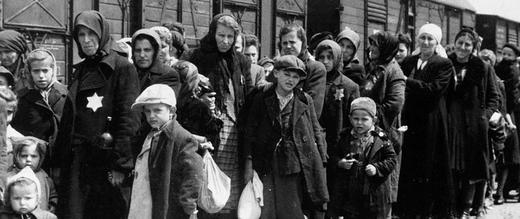In the realm of human experience, few tragedies have echoed through the corridors of time with as much poignancy as the Holocaust. Its very mention invokes a kaleidoscope of emotions—grief, anger, reflection, and, indeed, a resolve to prevent such horrors from repeating. Within the Bahá’í teachings, a framework emerges that not only commemorates the victims of the Holocaust but also offers a profound perspective on fostering a harmonious and just world. This dual purpose—to remember and to prevent—is imbued with a deep urgency and a sense of collective responsibility.
The act of remembrance is akin to lighting a candle in the darkest of nights. It illuminates the past, revealing the intricacies of human suffering and the profound moral failures that allowed such atrocities to transpire. The Holocaust stands as a stark reminder of the dangers inherent in intolerance, prejudice, and the dehumanization of others. Within Bahá’í teachings, there is an emphasis on the oneness of humanity—a fundamental principle that underlines the belief that all individuals, regardless of their background, are part of a greater whole. The Holocaust serves as a vivid illustration of what may occur when this principle is ignored, leading societies down a path of division and despair.
To remember the Holocaust is not merely an act of recollection; it is an essential element in the fabric of moral and spiritual education. The Bahá’í perspective suggests that through the acknowledgment of past injustices, we cultivate an environment in which empathy and compassion flourish. Just as a gardener must tend to the soil before planting seeds, so too must we prime our hearts and minds with lessons from history, ensuring that we nurture a culture that values unity and respect. This active engagement with the past demands that we confront uncomfortable truths about human nature and societal constructs that perpetuated suffering.
Moreover, the Bahá’í teachings call for a proactive stance against the ideologies that breed hatred and division. The concepts of justice and equity permeate this framework, insisting that societal structures must reflect the values of love and inclusivity. A world devoid of tyranny and oppression is anchored in the recognition of the dignity of every individual. Prevention, therefore, is built on the pillars of education, dialogue, and collaboration—a triad that fosters understanding across diverse communities. In nurturing these pillars, we create a robust defense against the resurgence of destructive ideologies.
This imperative extends beyond mere intellectual acknowledgment. The act of remembrance must be coupled with tangible action. It requires individuals and communities to engage in meaningful dialogues about the lessons derived from the Holocaust. These conversations should transcend cultural boundaries, inviting diverse viewpoints that enrich our understanding of human rights. By weaving together the narratives of various cultures and histories, we can construct a tapestry that celebrates our shared humanity while resisting the fissures that lead to discrimination.
In the continuing dialogue surrounding Holocaust remembrance, it is essential to embrace the role of arts and literature as vehicles for education. The creative expressions found within these mediums often capture the essence of human experiences in ways that statistics and historical analyses cannot. Bahá’í teachings encourage the proliferation of art and literature that reflect the shared sufferings and triumphs of humanity, inviting audiences to empathize with those who have endured unimaginable atrocities. Just as a symphony draws diverse instruments together to create a harmonious outcome, so too can literature and art unify our varied experiences into a coherent narrative of survival and hope.
Furthermore, interfaith collaboration emerges as a vital strategy in combating the recurrence of such horrors. Bahá’í principles advocate for the strengthening of bonds between religious and cultural communities. By fostering interfaith dialogues and initiatives, common ground can be established where mutual respect can flourish. These collaborations enhance awareness of common values and aspirations, and they challenge divisive ideologies that seek to polarize humanity. When communities unite, they create a resilient collective that stands against hatred and injustice.
Integral to this collective action is the foundation of education, particularly for the youth. The Bahá’í emphasis on universal education extends to the moral and ethical teachings derived from history. By instilling a profound understanding of the Holocaust and its implications within educational curricula, future generations can become informed stewards of justice and peace. A generation equipped with the knowledge and tools to recognize and combat discrimination is one that embodies the hope of a brighter future.
Collectively, the injunction to remember the Holocaust is both a solemn and empowering call to action. It serves as a reminder that, while the shadows of the past may loom large, they do not dictate our future. With commitment and resolve, humanity can forge a path illuminated by justice, compassion, and understanding. Thus, as we commemorate the victims and honor their legacy, may we also embody the principles that prevent such tragedies from ever transpiring again. The Holy teachings of the Bahá’í Faith offer a unique and transformative approach, urging us to weave remembrance into the very fabric of our communities, ensuring that the stories of the past guide us toward a future of unity and peace.
